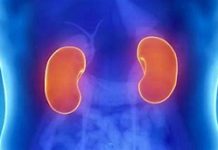Highlights
- Hangovers are caused when the levels of alcohol in the bloodstream begins to decrease.
- It usually sets in ten hours post alcohol consumption and reaches its peak when the blood level of alcohol reaches zero.
- Consuming certain alcohols increase the severity of hangover due to the presence of congeners, which gives the alcohol its distinct dark color and taste.
Hangovers caused by certain alcoholic drinks are worse than others.
A hangover is a collection of signs and symptoms linked to a recent bout of heavy drinking. The sufferer typically has a headache, feels sick, dizzy, sleepy, confused and thirsty.
Hangovers can occur at any time of day, but are usually more common the morning after a night of heavy drinking.
Hangover, also known scientifically as veisalgia, is the body’s way of notifying about overindulgence.
About Hangover
Hangovers start ten hours after the consumption of alcohol when the alcohol in the bloodstream begins to decrease. It reaches its peak when the alcohol level in the bloodstream reaches zero.
The body breaks down the ethanol in the alcohol to formaldehyde and formic acid which are toxins. Another byproduct of alcohol break down is acetaldehyde which is responsible for excess sweating, nausea, and vomiting.
Why do Some Drinks Cause the Worse Hangovers?
The kind of alcohol one drinks affects the severity of the hangover.
Alcohol is fermented, which creates alcohol and other byproducts, like carbon dioxide that is responsible for harmless bubbles.
Fermentation also produces chemicals called congeners, or fusel oil impurities, which are a make us feel sick. These congeners are also responsible for some of the distinct tastes in darker drinks, like whiskey, red wine, or brandy.
A 2006 Dutch study on college students found that darker alcohol with more congeners tend to cause worse hangovers.
Liquors were more likely to cause hangovers than beer or wine, likely because liquor has higher alcohol concentrations.
On a positive note, a study has identified that some of those congeners in whiskey helped protect the stomach lining from damage.
The process of distillation helps filter out the congeners. But cheaper alcoholic drinks are not distilled more than a couple of times and are therefore more likely have more congeners.
But hangovers may get less severe with age.
A study in the journal Alcoholism of 51,645 Danish men and women found that the older someone gets, the less likely they are to experience a severe hangover after a binge drinking session — even after controlling for food consumption and quantity and frequency of regular drinking.
Adding Carbonated Mixers
Carbonation increases feeling of hangover.
A 2007 study, that involved 21 participants found that when participants drank vodka mixed with soda, their blood alcohol levels were higher than those who drank straight vodka or vodka mixed with water.
The researchers hypothesized that this was because the added drink volume from the bubbles caused the stomach to release its contents to the small intestine, where alcohol is absorbed into the blood stream, sooner.
Another study that involved 12 participants found that people who drank flat Champagne had lower blood alcohol levels than those who drank it with its bubbles.
And sugar may also play a role in the rate of absorption, by increasing it.
“Commonly used mixers, such as lemonade, contain high levels of glucose, which have been shown to affect gastric emptying and therefore alcohol absorption rates,” the authors of the 2007 study write.
Symptoms of a hangover
Common symptoms of a hangover include headache, dizziness, thirst and fatigue.
A symptom is something the sufferer or patient feels and describes, such as feeling thirsty or a headache, while a sign is something everybody, including the doctor or nurse can detect, such as bloodshot eyes, or a rash.
The signs and symptoms of a hangover generally start to occur when the drinker’s blood alcohol drops considerably – typically, the morning after a night of high alcohol consumption, and may include:
- Accelerated heartbeat
- Bloodshot eyes
- Dizziness
- Hypersalivation
- Diarrhea
- Photophobia (sensitivity to light)
- Problems focusing or concentrating
- Anxiety
- Body and muscle aches
- Halitosis(bad breath)
- Headache
- Flatulence
- Irritability
- Lethargy,tiredness, fatigue, listlessness
- Nausea
- Sensitivity to loud sounds
- Depression (dysphoria)Stomachache
- Stomachache
- Moodiness
- Trembling or shakiness, erratic motor functions
- Thirst
- Vomiting
No real cure yet
There is no real cure to hangover. To take adequate rest and replenish the body with sufficient water and salt is the best idea to alleviate the annoyance caused by hangover.
“There’s no magic potion that gets rid of a hangover,” says George Koob, MD, director of the National Institute on Alcohol Abuse and Alcoholism(NIAAA). The only way you can avoid that tired-headachy-nauseated feeling is to drink less.
But if you think you might overdo it, these steps could help tone down your morning-after symptoms.
Hangover prevention
The only sure way to prevent a hangover is to drink in moderation or not drink at all. For healthy adults, moderate drinking means up to one drink a day for women of all ages and men older than 65, and up to two drinks a day for men 65 or younger. A drink is defined as:
12 ounces (355 milliliters) of beer — about 5 percent alcohol
8 ounces (237 milliliters) of malt liquor — about 7 percent alcohol
5 ounces (148 milliliters) of wine — about 12 percent alcohol
1.5 ounces (44 milliliters) of 80-proof distilled spirits — about 40 percent alcohol
Be careful, though — some drinks may contain more alcohol than you realize. Often drinks are larger at bars and restaurants. And some drinks of the same size may contain more alcohol than others. For example, some light beers contain almost as much alcohol as regular beers, and some liquors contain a higher percentage of alcohol than others.
Certain helpful Tips
Hair of the Dog– This theory suggests to have another drink to get rid of hangover. Hangover is actually the symptom of very small amounts of methanol. So having another drink will help ethanol displace the methanol making and makes the person feel better.
As well as water, drink fresh juice to give yourself a vitamin boost. If you really need it, take a painkiller and an antacid to settle your stomach. Try a rehydration treatment sachet – they replace lost minerals and salt.
Eat something – bananas and kiwis are a good source of potassium (a mineral you lose when you drink because of the diuretic effect of alcohol).











